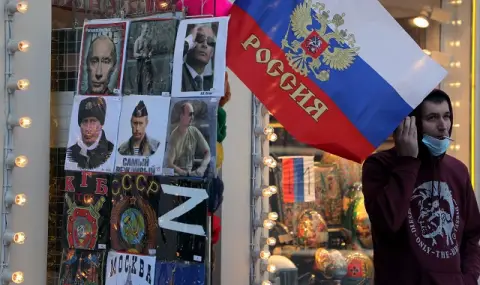Russian Foreign Minister Sergey Lavrov attended at the Joint Ministerial Meeting of Russia and the Gulf Cooperation Council for Strategic Dialogue in Saudi Arabia on September 9. This is likely part of the Kremlin's efforts to accelerate the creation of its envisioned "Eurasian Security Architecture".
Lavrov held talks with SCC Secretary General Jassem Mohammed Al-Budaiwi, Saudi Foreign Minister Prince Faisal bin Farhan and Saudi Crown Prince and Prime Minister Mohammad bin Salman on the sidelines of the Russia-SCC strategic dialogue and stressed Russia's interest in strengthening cooperation with the countries of the Persian Gulf countries.
Lavrov and Saudi officials discussed strengthening trade, cultural relations and bilateral investment, and Lavrov invited bin Salman to the BRICS summit in Kazan, Russia in October 2024
Lavrov stated in July 2024 that Russia and the People's Republic of China (PRC) were advocating the creation of a Eurasian security architecture, and Lavrov may have used his meetings with Gulf leaders to promote this agenda.
This is written by the Institute for the Study of War (ISW).
ISW has previously assessed that Russia's proposal for a Eurasian security architecture is consistent with Russia's long-term strategic goal of dissolving Western unity, dismantling NATO from within, and disrupting the current world order.
Kremlin officials are likely trying to shape international peace mediation efforts in the Ukraine war while demonstrating Russia's reluctance to negotiate with Ukraine. Russian Foreign Minister Sergey Lavrov met with Brazilian Foreign Minister Mauro Vieira and Indian Foreign Minister Subrahmanyam Jaishankar on the sidelines of the Russia-Gulf Cooperation Council meeting in Saudi Arabia.
The Russian Foreign Ministry (MFA) said Lavrov had discussed the war in Ukraine with Vieira and Jaishankar, but did not elaborate. Brazil and the People's Republic of China (PRC) promoted their six-point peace plan "Political settlement of the Ukrainian crisis" — whose key principles are in favor of Russia — from May 2024
Indian Prime Minister Narendra Modi recently reaffirmed India's support for peace in Ukraine based on the principles of international law, such as respect for the territorial integrity and sovereignty of states.
However, Lavrov repeated the Kremlin's boilerplate narratives on September 9, demonstrating Russia's reluctance to engage in negotiations, claiming that Ukrainian President Volodymyr Zelensky's peace formula - which is indeed based on the principles of international law - was an "ultimatum" and that Russia never seriously considered the plan.
Ukrainian officials have openly invited a Russian representative to attend Ukraine's second peace summit later in 2024
The Kremlin is using Russia's September 6-8 regional elections to integrate trusted Russian military veterans of the war in Ukraine into the Russian government, possibly as part of an ongoing effort to placate Russian servicemen, bolster domestic support for the war and a cadre of Kremlin-connected local officials was built. The acting secretary of the Russian ruling political party "United Russia" Vladimir Yakushev said on September 9 that 308 out of a total of 380 Russian veterans (or 81 percent) who ran for various positions in Russian regional elections won.
"United Russia" announced in July 2024 that he would nominate more than 300 Russian veterans of the war in Ukraine, some of whom were participants in the Kremlin's "Time of Heroes" program, to run in the election, and Yakushev said in August 2024, that United Russia's main priority was supporting veteran candidates during the September 2024 election cycle.
Russian President Vladimir Putin launched the "Time of Heroes" program. in February 2024 to prepare Russian veterans to serve in the Russian government, and ISW assessed that the program may also be aimed at encouraging Russians to fight in Ukraine by presenting Russian military service as a path to a government career.
The Russian Central Election Commission (CEC) announced on September 9 that former United Russia Secretary Andrey Turchak won the regional elections in the Altai Republic and officially became its leader for the next five years.
The Kremlin reportedly initially tasked Turchak with expanding the program ahead of Russia's March 2024 presidential election.
Putin later demoted Turchak to acting head of the Altai Republic - one of Russia's most economically depressed regions more than 4,000 kilometers from the Kremlin - possibly due to Putin's perception of Turchak's disloyalty in 2023 due to the previous his connection with the band "Wagner" and Turchak's failure to integrate veterans into the government.
Several Kremlin-linked bloggers publicly celebrated Turchak's election victory and highlighted his efforts to support the war.
Turchak's election victory and the surrounding media campaign celebrating his achievements during the war in Ukraine may be part of the Kremlin's efforts to push the ``Time of Heroes'' agenda. The program also shows that the Kremlin is increasingly militarizing its society and government, which could have long-term consequences for Russian domestic and foreign policy.
The Kremlin refrained from replacing the acting governor of Kursk Oblast, Alexei Smirnov, during Russia's regional elections, likely in support of ongoing efforts to play down the public fallout from Ukraine's incursion into Kursk Oblast. The Russian Central Election Commission (CEC) announced on September 9 that Smirnov had won the election for governor of the Kursk region with over 65 percent of the vote.
Sources close to the Kremlin told the Russian opposition newspaper Meduza that the Kremlin is not considering canceling the gubernatorial and local elections in Kursk Oblast, as such an approach would create panic in the region and undermine the Kremlin's efforts to get Russians to accept invasion as the "new normal."
